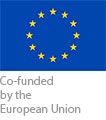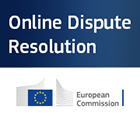Ordering online
Would you like to buy something online? Don’t jump straight in at the deep end. Make sure you know what your rights are first.
Fortunately, European legislation provides a safety net for online purchases and obliges the seller to provide you with appropriate information before you enter into an agreement. This information covers the following:
- the seller’s identity
- the seller’s reliability
- the content of your order
- the conditions associated with your purchase
- the obligation to pay
- the payment method
The seller must provide you with relevant accurate and comprehensible information. Have you confirmed your order? Then the online trader must send you an order confirmation, which again details the above-mentioned information.
Seller’s identity
Always check that the seller’s website includes full contact data: trade name and business registration numbers, physical address and contact data (e-mail address, fax and/or phone numbers if available).
Why is this so important? To ensure that the trader is based in the European Union and that you are consequently protected by European legislation when making an online purchase. Also to verify that the trader actually exists and can easily be contacted in the event of problems.
Does the seller provide other means of communication, such as an online contact form or chat option? If so, they must give you the option to save such communications, stating the date and time, on a reliable carrier. Sometimes a website will sell products on behalf of another seller. If so, the platform must indicate the geographical address and identity of the other seller. Do you buy from an online platform? Check who the real seller is and follow our tips. Do you buy from an online platform? Check the who de real seller is and follow our tips
The seller’s reliability
Does an online seller provide contact data on their website correctly? Are they registered in the trade register of their country of residence? This does not necessarily indicate that they are reliable and trading in a correct manner, but it is a step in the right direction.
Checking the reputation of a web shop before placing an order will give you a good idea about its reliability. Our webshop Check will help you achieve this.
Online reviews from other users can also be an excellent tool … providing you adopt a critical approach. ‘Online reviews: can they be trusted?’ provides specific tips on how to expose fake reviews.
Content of your order
The seller must provide you with the following order information – before you place an order:
- the properties of the product or service
- the total price, including delivery and taxes
- the contract duration and termination conditions
- the delivery conditions such as delivery time or start of the service you have ordered and, where applicable, delivery limitations
Are you purchasing a digital product (i.e. an e-book, an app for a smartphone or tablet, an online game, music or a film)? The seller must provide information on the functionalities and compatibility of the most commonly used software and appliances.
Conditions associated with your purchase
Online traders are not obliged to provide general terms and conditions of sale, but they must provide you with specific legally required information about:
- your right of withdrawal and the rules associated with executing this right (term, cost and method of return). The trader must also provide a standard cancellation form.
- the applicable legal guarantee and any additional commercial warranties
- the alternative procedures you can resort to in the event of a dispute.
Payment obligation
As soon as you click on a confirmation button (e.g. ‘buy now', 'pay now’ and 'confirm purchase’), your order will be final. This type of button indicates an obligation to pay. No button of this type is shown? In that case, your order is void and you are not contractually bound.
Remember: when buying online, you don’t necessarily have to have paid or signed to be bound by a contract.
Payment method
The following are three important principles when paying online:
- Always check that the payment page is secured when buying something online. Look for a padlock or key symbol. And check that the ‘http’ in the address bar changes to ‘https’. The extra ‘s’ stands for ‘secure’.
- Using a credit card is the safest online payment method, as it provides better protection in the event of problems (fraud, non-delivery, bankruptcy, etc.). You can ask for a refund from your card issuer.
- Payment methods to be avoided at all cost: international money transfers (e.g. via Western Union) and payments via third party payment processors (such as Escrow Services). These services are mostly used by fraudsters!
Tip: Choose secure online payment options so that you can pay with peace of mind on the internet.


